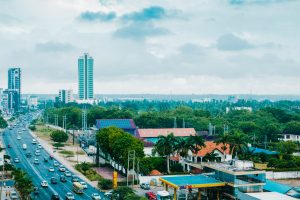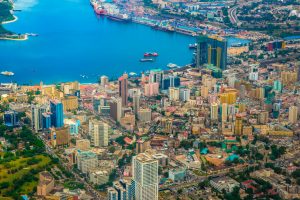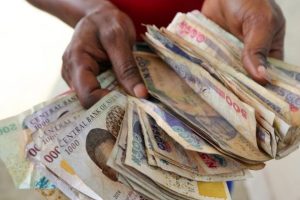Several African countries have legalized industrial and medicinal cannabis while others are considering tapping into the highly lucrative industry. According to a UN survey, more than 10, 000 tons of cannabis are produced on the continent every year. This means that if more countries can loosen their laws governing cannabis, the figures can be much higher and will, in turn, create more job opportunities. Consequently, this step will address the high levels of poverty in the continent and boost economic growth. The following African countries are considering legalizing industrial and medicinal cannabis.
Countries that have legalized cannabis in Africa are Lesotho, Malawi, South Africa, Zimbabwe, Ghana, Uganda, Rwanda, and Zambia.
The UN Commission on Narcotic Drugs (CND) voted in December 2020 to remove marijuana from Schedule IV of the 1961 Single Convention on Narcotic Drugs where it was listed as one of the most dangerous drugs. The decision is expected to highlight the medicinal and therapeutic potential of marijuana as well as drive scientific research into marijuana.
Nigeria
Even with the strict cannabis laws in Nigeria, over 10% of adults use cannabis in the country. Nigeria is Africa’s most populous country, and if industrial and medicinal cannabis is legalized, its market could be worth $3.7 billion by 2023. This will also be possible due to the favourable growing conditions in the country. Debates around legalization have begun, but there are groups which are against it. A good example is the NGO Christ Against Drug Abuse Ministry.
The governor of Ondo State, Rotimi Akeredolu, called upon the government to legalize and encourage the cultivation of medicinal cannabis in Nigeria. However, the National Drug Law Enforcement Agency (NDLEA) is yet to grant licenses to corporations or individuals because there is a division in parliament. Some political parties are anti-cannabis use while others advocate for its legalization. The former president, Olusegun Obasanjo, also called for the decriminalization of cannabis.
Kenya
Kenya is a major illicit cannabis producer with the harshest cannabis laws. However, Kenya is likely to be the next entry into the cannabis industry in East Africa. At the end of 2018, former Kibra MP (the late Ken Okoth) tabled a Marijuana Control Bill in the National Assembly to legalize cannabis for industrial and medicinal purposes. The debate about legalizing cannabis has been ongoing since then. Okoth and his friends argued that if the government could formulate sound policies to regulate cannabis farming and selling, the economic benefits will outweigh the reasons to criminalize the plant.
A majority of Kenyan politicians are still against its legalization, arguing that a large number of students in schools abuse the drug. On the other hand, the Pharmaceutical Society of Kenya is now pushing parliament to pass a bill legalizing medical marijuana.
Recently, Kenyan Senator Ledama Olekina and researcher and author Gwada Ogot said that it’s time Kenyans start having a conversation on the economic benefits of legalizing marijuana.
Morocco
Morocco is the world’s largest cannabis resin producer. The crop is widely grown and tolerated for personal use in the country, but it is still illegal. Morocco’s parliament has been considering legalizing cannabis for industrial and medicinal purposes since 2011. An opposition party proposed a bill to legalize industrial and medicinal cannabis in 2014. Still, the bill failed, and the conversation to legalize it has been going on since then although very slowly. Despite being illegal, the cannabis industry employs 800, 000 people in the country, and provides a living for around 90, 000 to 140, 000 families. Many politicians in Morocco support the legalization of cannabis for medicinal and industrial purposes. Its economic benefits can be the reason for its legalization.
eSwatini
Cannabis in eSwatini is estimated to be worth $1.63 billion per year if it is legalized. The government is considering legalizing industrial and medicinal cannabis to boost the country’s economy. The illegal cannabis trade in eSwatini is booming due to the high international demand for the “Swazi Gold”. This shows that there will be a ready market when the crop is legalized.
There has been a race to legalize cannabis in the country. Minister Phiwayinkhosi Mabuza called for the legalization of cannabis for medicinal and industrial purposes in 2015. In 2017, lawmakers announced that they would explore the option of legalizing cannabis to boost the country’s economy. In 2019, the Ministry of Economic Planning and Development granted a 10-year license to a U.S- based company to establish a farm and processing plant for medicinal cannabis and industrial hemp. The cannabis to be grown on the farm was exclusively for export.
Egypt
There have been efforts to legalize medicinal cannabis in Egypt. The country has a legal industrial hemp industry, allowing farmers to grow cannabis with very low psychoactive properties. Egypt’s Tobacco Merchants Association submitted a proposal to the cabinet to legalize the trade and use of hash, a drug made from cannabis. The association argued that legalizing it will reduce the state’s budget deficit. Again, in October 2018, the Deputy Governor of Cairo, John Talaat proposed a draft law seeking to legalize cannabis. However, the government is slow in making a resolution concerning the legalization of cannabis since most political parties have a negative view of the crop.
Tanzania
Tanzania is one of the largest producers of cannabis in the world despite being an illegal crop in the country. There have been heated debates in parliament where legislators are pushing the government towards legalization of the crop in the country. Mr Jumanne Khisimba (Kahama-CCM), the Minister of State Angellah Kariuki, Geita Rural MP Joseph Musukuma, among others, held a debate in parliament outlining the many benefits of the cannabis crop and the economic potential the crop could bring to the country. The government is yet to make a decision.
Final Word
Many African governments are yet to follow the trend of legalizing cannabis like most countries around the world as cannabis has a wide range of economic benefits. With many African countries living in poverty, legalizing its growth and use will create many job opportunities and boost African economies.















![How to Patent an Idea [Kenya, Tanzania, Ghana, Nigeria, South Africa, Zambia]](https://businessideas4africa.com/wp-content/uploads/2020/11/patent-300x200.jpg)




